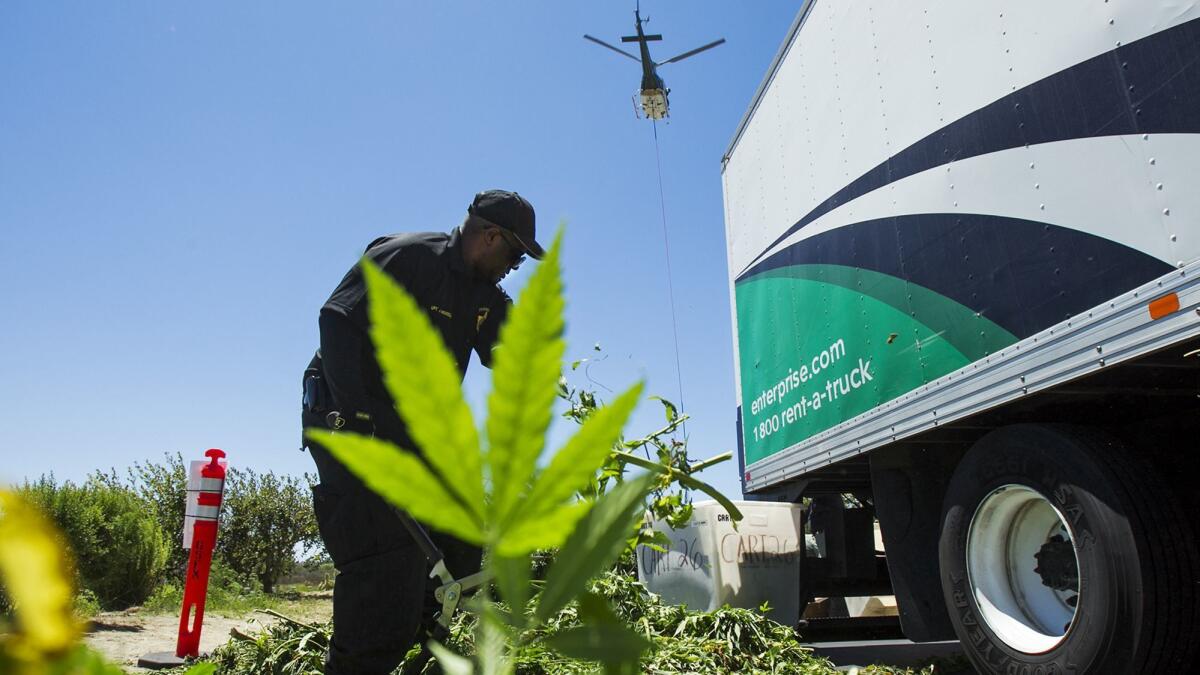500 plants, banned pesticide and poached deer found at illegal marijuana growing operation in Laguna Coast Wilderness Park

- Share via
Law enforcement seized 500 marijuana plants, 75 pounds of processed marijuana, a banned pesticide and a poached deer in eradicating an illegal marijuana growing operation at Laguna Coast Wilderness Park, authorities said.
The California Department of Fish and Wildlife and Orange County Parks completed the cleanup this month after the operation was discovered in September by Fish and Wildlife and the National Guard’s Counter Drug Unit during a routine flight over the area, Fish and Wildlife said.
The growing operation was equipped to sustain 1,500 plants, the department said.
During the eradication mission, Fish and Wildlife also found environmental violations including hazardous pesticide left on the property and a poached deer, authorities said. No suspects were apprehended in connection with the operation, Fish and Wildlife said.
The cleanup consisted of two phases in December and January that removed about 3,120 pounds of trash, 1,500 feet of plastic irrigation piping, 24 ounces of pesticide and other items, the department said.
Testing identified the pesticide as carbofuran, a banned chemical that is toxic enough to kill a 300-pound black bear with only one teaspoon, Fish and Wildlife said. A contractor was brought in to ensure the hazardous material was removed and disposed of correctly.
“Protecting California’s natural resources takes commitment from federal, state, county and city entities. I commend all those that were involved in this effort to identify the black-market grow, eradicate it and clean it up,” David Bess, chief of the Department of Fish and Wildlife’s law enforcement division, said in a statement. “Working together, we can protect the environment and help the permitted cannabis market thrive.”
All the latest on Orange County from Orange County.
Get our free TimesOC newsletter.
You may occasionally receive promotional content from the Daily Pilot.




